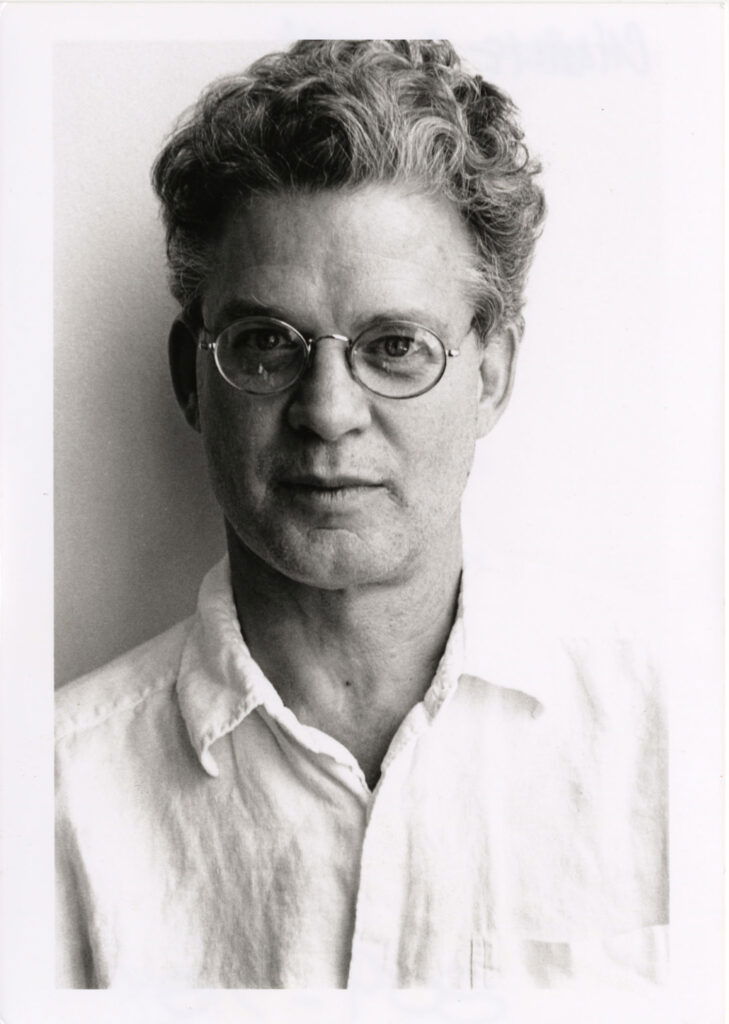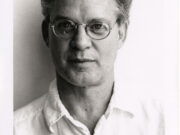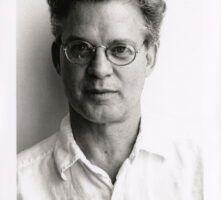A Georgia-born poet, novelist, and short-story writer, Charlie Smith is a frequent contributor to national literary journals and periodicals, including Poetry, the Paris Review, and the New Yorker. Equally adept at poetry and fiction, Smith is a master of notable lyrical description, sensory detail, and candor. In several novels, novellas, and collections of poetry, Smith balances the loneliness and bleakness of his characters’ lives with the beauty and transcendence of the natural world.

Courtesy of Charlie Smith
Early Life
Smith was born in Moultrie on June 27, 1947, to Jeanette Early and Charlie O. Smith Sr., a Georgia legislator. Educated at Phillips Exeter Academy in New Hampshire, Smith received a B.A. in English and philosophy from Duke University in Durham, North Carolina, in 1971, and an M.F.A. from the University of Iowa Writers Workshop in 1983. Smith has been a newspaper writer and editor, businessman, farmer, and laborer. From 1968 to 1970 he was a Peace Corps volunteer in Micronesia.
Smith’s first marriage, to Kathleen Huber in 1974, ended in divorce three years later. In 1987 he married Gretchen Mattox, a poet and teacher. He has lived, taught, and traveled throughout the world. He teaches creative writing and lectures at Princeton University in Princeton, New Jersey, and resides in New York City.
He has won numerous honors and awards, including the Aga Khan Prize from the Paris Review for his novella Crystal River, the National Poetry Series Award in 1987 and the Great Lakes New Poets Award in 1988, both for Red Roads. He is a member of PEN and the Academy of American Poets, and served on the board of directors for the Poetry Society of America from 1992 to 1996.
Fiction
In elegant and lyric prose, Smith explores the limits of his characters’ endurance in often violent and erotic encounters. At his best when he cuts through the sentiment of life experiences, Smith chronicles the skirmishes that take place in the hearts of the protagonists.
Canaan (1984), set in South Carolina in the 1940s and 1950s, is the tale of Elizabeth Bonnet Burdette, a former belle whose refusal to follow anyone’s rules, including those of her husband, J. C., owner of the ancestral home of Canaan, sets up a confrontation between old and new traditions. Shine Hawk (1988) is narrated in a series of long flashbacks by Billy Crew, who returns to the Shine Hawk prairie of south Georgia after years of exile in New York to confront Hazel Rance, his former girlfriend. Billy instead gets involved in a journey to bury his buddy Frank’s dead brother. Often erotic and violent, the novel deals with loss, love, and the need to persevere. The Lives of the Dead (1990) also involves a journey, this one by Buddy Drake, a cult filmmaker traveling to Florida, whose troubles, both real and imagined, blur the lines between madness and murder.
Crystal River: Three Novellas (1991), which includes the award-winning title story first published by the Paris Review in 1983, explores similar themes: protagonists searching for answers in their spiritual journeys, a desire for brotherly love, and absent fathers and ineffectual mothers. Smith’s fourth novel, Chimney Rock (1993), features a modern Hollywood setting that is both Southern Gothic and metaphoric dreamscape. The novel is part murder mystery, part family tragedy, and part exploration of extremes. The novel’s narrator, Will Blake, becomes involved in a violent, Oedipal struggle with his father over their shared love for Kate Dunn, Will’s wife. In his novel Cheap Ticket to Heaven (1996), Smith chronicles the serial killings of Jack and Clare, bank robbers who cut a bloody swath traveling the length of the Mississippi River.
Poetry
In his collections of poetry—Red Roads (1987), Indistinguishable from the Darkness (1990), The Palms (1993), Before and After (1995), Heroin and Other Poems (2000), and Women of America (2004)—Smith’s elegant lyrics and sensory details plunge his characters into extreme situations and private emotions with honesty and intensity. Whether detailing the landscape of his native South or signifying heroin as a metaphor for longing and desire, Smith’s poetry speaks to the same themes as his novels: memories, fate, loneliness, brotherhood, failed relationships, desperate and disillusioned voices, and the sadness and defiance of families falling apart.
In a 1993 interview, Smith acknowledges his wild boy past that gives life to the narrators and situations in much of his poetry. Though his characters often seem to have reached the end of the road, their will to survive is evident in their struggle to overcome self-pity and desperation. The haunting tone of Smith’s verse reflects a cynical and disillusioned world whose inhabitants desperately seek a hard-won wisdom that is central to Smith’s own experience.






